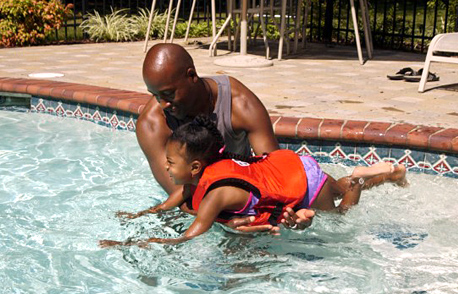Water Safety Is Always Important

With drowning being one of the leading causes of death among children, there is clearly a need for water safety. According to the World Health Organization, the children who are most at risk of drowning are those ages one to four years, followed by children in the five to nine year range These are frightening statistics for parents, but it doesn’t mean that children should be raised to fear water. Instead, children should be taught how to remain safe around water.

In a 2009 study on the association between swimming lessons and drowning in childhood, it was found that formal swimming lessons could reduce the risk of drowning by up to 88% for children in the one to four year old age range (http://www.ncbi.nlm.nih.gov/pubmed/19255386). With the availability of Omaha swimming lessons that cater to children in this age range, it is vital that children are given every opportunity to safeguard themselves with the ability to swim.
Even if a child can swim, it doesn’t mean swimming will become a risk-free activity for them. As with anything, accidents can happen, and without proper supervision these can often be fatal. It doesn’t matter how much or how deep the water is, there is always an element of danger involved, especially with young children. In fact, most drownings occur while children are left unattended in residential pools. Be sure to always keep an eye on children when they are swimming or make sure that they are under the supervision of someone responsible.
Parents often think that it is sufficient that their children go for swimming lessons to make them safer around water. However, swimming is just as important for parents as you never know when your child might need assistance in the pool. Because drowning can occur very suddenly, it is better to be able to jump in and help than to try and find help if something goes wrong. Drowning is often portrayed on television as something involving a lot of screaming and splashing, but in reality this isn’t the case, especially with smaller children.
Being able to perform CPR and knowing what to do in an emergency can often make the difference between life and death, so it should not be underestimated. If possible, make sure that everyone in your family knows at least basic first aid.
Being safe around water doesn’t just mean being able to swim and being supervised. Swimming outdoors is typically done in sunny weather, which means sun protection is just as important. Sunscreen should not only be applied but also reapplied after getting wet. Outside the water, other precautions such as hats and sunglasses can provide further protection. Dehydration is also a risk for children who are active, so ensure that they drink plenty of fluids.
